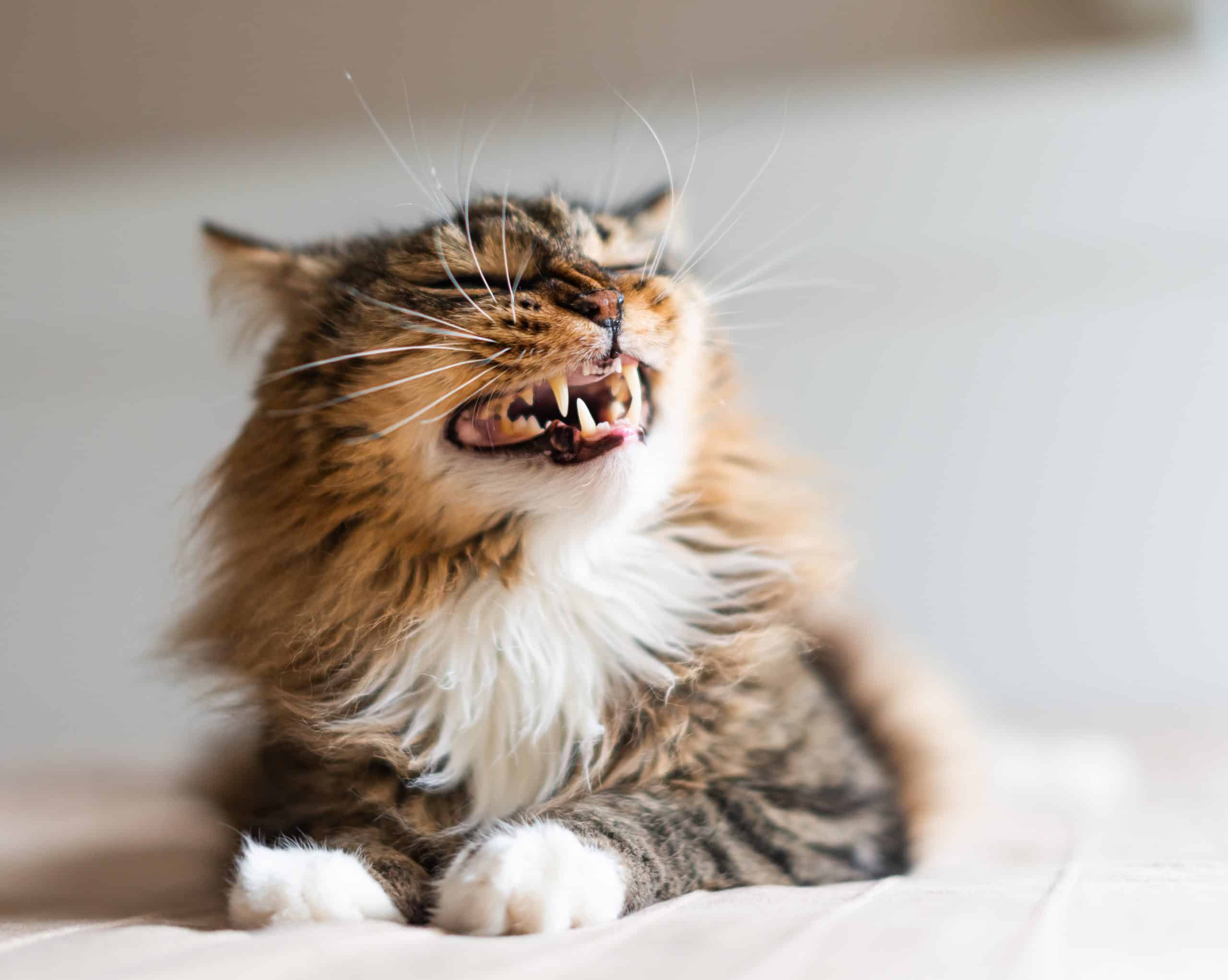Are you eagerly anticipating the arrival of your cat's kittens? Understanding the timeline and stages of your cat's pregnancy is essential for ensuring a smooth and healthy birthing process. Whether you're a first-time cat owner or someone with prior experience, recognizing the signs and milestones of feline pregnancy can make all the difference. In this detailed article, we'll explore every aspect of cat pregnancy, from conception to delivery, and provide expert advice to ensure your cat and her kittens are healthy and happy.
Experiencing your cat's pregnancy can be both thrilling and nerve-wracking. Knowing when your cat's kittens are due involves more than just marking a date on the calendar. It requires understanding the signs of pregnancy, the stages of fetal development, and how to care for your cat during this pivotal time. With the right knowledge and preparation, you can ensure the best possible health for both your cat and her kittens.
In this extensive guide, we'll walk you through the entire journey of cat pregnancy, from recognizing early signs to preparing for the arrival of the kittens. We'll also cover crucial tips for caring for a pregnant cat, ensuring her comfort, and supporting her during labor. Whether you're seeking advice on feeding, grooming, or identifying labor signs, this article has everything you need to know.
Read also:Exploring The World Of Ultra Hd The Impact Of 4k Hindi Movies
Table of Contents
Understanding Feline Pregnancy
Feline pregnancy, also known as gestation, typically lasts between 63 to 67 days. However, the exact duration may vary depending on factors such as the cat's breed, age, and overall health. Gaining a solid understanding of the basics of cat pregnancy is the first step in preparing for the arrival of your cat's kittens. During this period, your cat's body undergoes significant changes to support the growth and development of her unborn kittens.
Recognizing the Signs of Pregnancy
Identifying the signs of pregnancy early on can help you provide the best possible care for your feline companion. Some common indicators of pregnancy include:
- Increased appetite as her body prepares to nourish the developing kittens.
- Swollen or pinkish nipples, often referred to as "pinking up," which occurs around three to four weeks into the pregnancy.
- Weight gain, which becomes noticeable as the pregnancy progresses.
- Behavioral changes, such as increased affection or the development of nesting behavior, where your cat seeks out quiet, comfortable spaces.
If you suspect your cat is pregnant, it's crucial to consult a veterinarian for confirmation. A vet can perform an ultrasound or palpation to confirm the pregnancy and provide guidance on how to proceed. Early detection allows you to make the necessary adjustments to her diet, environment, and overall care.
The Stages of Cat Pregnancy
Cat pregnancy can be divided into three distinct stages: early, middle, and late gestation. Each stage has unique characteristics and requires specific care to ensure the health of both the mother and her kittens.
Early Gestation (Weeks 1-3)
During the initial weeks of pregnancy, your cat may not display many visible signs. However, significant hormonal changes are occurring within her body. This is an important time to focus on providing a balanced diet and creating a stress-free environment. Ensuring your cat feels comfortable and secure will lay the foundation for a healthy pregnancy.
Middle Gestation (Weeks 4-6)
As the pregnancy progresses into the middle stage, physical changes become more apparent. Your cat's belly will begin to enlarge, and her appetite will increase significantly. At this point, it's recommended to introduce high-quality kitten food, which is rich in essential nutrients and calories. This dietary change supports the growth and development of the kittens while meeting the mother's increased nutritional needs.
Read also:The Inspiring Journey Of Hafthor Bjornsson From Iceland To Global Fame
Late Gestation (Weeks 7-9)
In the final weeks of pregnancy, your cat will start preparing for the birth by exhibiting nesting behavior. She may seek out quiet, secluded areas to give birth. It's important to provide her with a comfortable and safe birthing space, such as a nesting box lined with soft bedding. During this stage, monitor her closely for signs of labor and be ready to assist if necessary.
Caring for Your Pregnant Cat
Proper care for a pregnant cat involves paying close attention to her diet, environment, and overall well-being. Here are some essential tips to ensure her health and comfort throughout the pregnancy:
- Provide a high-quality diet rich in protein and essential nutrients to support both the mother and her developing kittens.
- Ensure she has access to fresh water at all times, as hydration is crucial during pregnancy.
- Limit her physical activity to prevent stress or injury, especially as her belly grows larger.
- Schedule regular veterinary check-ups to monitor her health and address any concerns that may arise.
Feeding a Pregnant Cat
Your cat's nutritional needs increase significantly during pregnancy. Switching to a high-calorie kitten food is often recommended, as it provides the extra nutrients required for fetal development. While it's important to ensure she receives adequate nutrition, avoid overfeeding, as excessive weight gain can lead to complications during labor. Consult your veterinarian for guidance on adjusting her diet to meet her changing needs.
Preparing for the Birth of Kittens
As your cat approaches her due date, it's essential to prepare for the arrival of her kittens. Create a quiet and comfortable birthing area, such as a nesting box, and ensure it is lined with soft, clean bedding. Keep the area warm and free from disturbances to provide a safe and peaceful environment for the birthing process.
Identifying Labor Signs
Recognizing the signs of labor is crucial for ensuring a smooth delivery. Some common indicators of labor include:
- Restlessness or pacing as your cat prepares for the birthing process.
- Vocalizing or purring more than usual, which may indicate discomfort or excitement.
- Loss of appetite, as her body focuses its energy on labor.
- Visible contractions, signaling the onset of active labor.
If you notice any of these signs, stay calm and monitor her progress closely. Contact your veterinarian immediately if complications arise, such as prolonged labor or excessive bleeding. Being prepared and informed can help ensure a safe and successful delivery.
Postpartum Care for Mother and Kittens
After the kittens are born, your cat will need time to recover and bond with her newborns. Ensure she has access to plenty of food and water, as her nutritional needs remain high during the nursing period. Monitor her closely for signs of infection or other complications, and consult your veterinarian if any concerns arise.
Caring for Newborn Kittens
Newborn kittens are entirely dependent on their mother for warmth, nutrition, and care. Ensure the kittens are nursing regularly and gaining weight, which are key indicators of their health and well-being. Keep them warm and comfortable, especially during the first few weeks of life. If you notice any signs of illness or distress, seek veterinary assistance promptly to address any issues.
Common Questions About Cat Pregnancy
Here are answers to some frequently asked questions about cat pregnancy:
- How can I tell if my cat is pregnant? Look for signs such as weight gain, swollen nipples, and behavioral changes, such as increased affection or nesting behavior.
- How many kittens can a cat have in one litter? The number of kittens varies depending on the breed and individual factors, but most litters range from two to six kittens.
- What should I do if my cat goes into labor? Stay calm, monitor her progress, and contact your veterinarian if complications arise or if you have any concerns during the birthing process.
Essential Tips for New Cat Parents
Bringing home a pregnant cat or caring for newborn kittens can be a rewarding yet challenging experience. Here are some final tips to keep in mind:
- Consult your veterinarian regularly for advice and support, especially during the critical stages of pregnancy and postpartum care.
- Create a safe and comfortable environment for your cat and her kittens, ensuring they have everything they need to thrive.
- Be patient and attentive to your cat's needs during this time, as her well-being directly impacts the health of her kittens.
Conclusion
Understanding when your cat's kittens are due is a vital part of ensuring a safe and healthy pregnancy. By recognizing the signs of pregnancy, preparing for the birth, and providing proper care, you can help your cat and her kittens thrive. Remember to consult your veterinarian for guidance and support throughout the entire process. With the right knowledge and preparation, you can make this experience a joyful and rewarding one for both you and your feline family.
If you found this article helpful, please share it with other cat owners or leave a comment below with your thoughts or questions. For more tips and advice on cat care, explore our other articles and resources!

